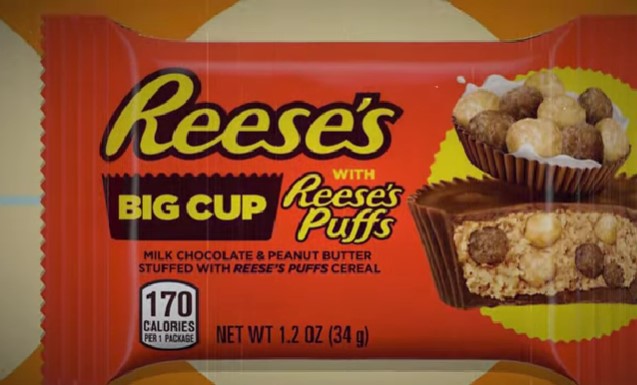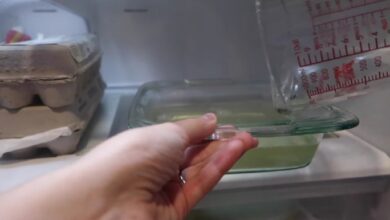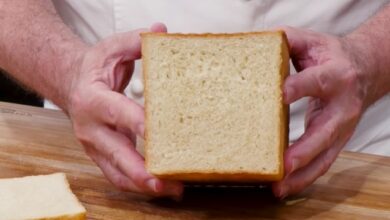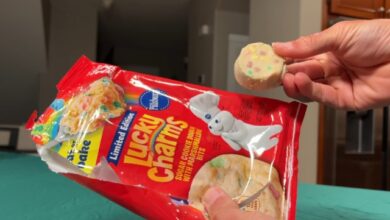Is Reese’s Halal
Reese’s products, particularly the popular Reese’s Peanut Butter Cups, are beloved by many for their unique combination of chocolate and peanut butter. However, for Muslims who follow a halal diet, the question arises: are Reese’s products halal? This article delves into the ingredients, certification, and potential concerns to determine whether Reese’s can be considered halal.
Introduction
Reese’s Peanut Butter Cups have been a staple in the world of candy for decades, delighting consumers with their distinct flavor profile. But for those adhering to halal dietary guidelines, ensuring that these treats align with Islamic law is paramount. The question of whether Reese’s is halal is multifaceted, involving scrutiny of ingredients, manufacturing processes, and certification standards. In this comprehensive article, we’ll explore all aspects of Reese’s to provide a clear and detailed answer for the Muslim community.

Ingredients of Reese’s Products
To determine the halal status of any food product, the first step is to examine its ingredients. Here is a breakdown of the typical ingredients found in Reese’s Peanut Butter Cups:
- Milk Chocolate: Contains sugar, cocoa butter, chocolate, skim milk, milk fat, lactose, lecithin, and PGPR.
- Peanut Butter: Contains peanuts, sugar, dextrose, salt, TBHQ (preservative), and citric acid.
Most of these ingredients are considered halal. The main concerns usually revolve around the sources of lecithin and TBHQ, which are typically derived from soy and are generally halal.
Halal Certification
Reese’s has taken steps to address the dietary needs of their Muslim consumers. Certain Reese’s products have obtained halal certification from reputable organizations such as the Islamic Food and Nutrition Council of America (IFANCA) and Halal Certification Services (HCS). These certifications ensure that the products meet strict halal standards, including the prohibition of alcohol and pork products.
Halal Certification Logos
Consumers should look for specific halal certification logos on Reese’s packaging, such as:
- IFANCA: A green crescent with the letters IFANCA.
- HCS: A green and white seal with the words “Halal Certified”.
Not all Reese’s products are halal certified, so it is essential to check the packaging for these logos to ensure the product is halal.
Cross-Contamination Risks
One potential issue is the risk of cross-contamination during production and storage. Reese’s products might be manufactured in facilities that also handle non-halal ingredients. Proper cleaning and segregation practices are necessary to minimize this risk. Halal certification bodies typically require stringent protocols to prevent cross-contamination, but it remains important for consumers to be aware of this potential issue.
Varied Opinions
There are differing opinions within the Muslim community regarding the halal status of Reese’s. Some sources affirm that Reese’s products, particularly those that are halal certified, are safe for consumption. They emphasize that ingredients used are halal and do not include any haram substances. However, other sources point out that certain batches may contain trace amounts of ethanol, a type of alcohol, rendering them haram.
Frequently Asked Questions
Is Reese’s Pieces real chocolate?
Reese’s Pieces are not made with real chocolate. Despite the assumption based on their brown color, these candies are peanut butter-flavored with no chocolate content.
Why do Reese’s say “Not Sorry”?
The “Not Sorry” tagline reflects Reese’s self-awareness about how their products easily make people crave them. It acknowledges that they are unapologetic about tempting consumers.
Is Reese’s peanut butter kosher?
Reese’s Creamy Peanut Butter is kosher-certified, making it suitable for individuals following kosher dietary laws.
What is the white stuff on Reese’s?
The white coating, known as “chocolate bloom,” occurs naturally. It happens when the cocoa butter in the chocolate melts and separates due to high temperatures, which might slightly alter the taste but is not harmful.
Does Reese’s have meat in it?
Reese’s products do not contain meat. They are vegetarian-friendly as they contain dairy but no meat-derived ingredients.
Is Reese’s peanut butter vegan?
Reese’s peanut butter products are not vegan as they contain dairy ingredients. Some Reese’s products may also contain sugar processed with bone char, making them unsuitable for vegans.
Can Muslims eat Twix?
Yes, Twix chocolate bars are considered halal and can be consumed by Muslims.
Are Reese’s Pieces vegan?
Reese’s Pieces are not vegan since they contain milk. Additionally, other ingredients like refined sugar may not be vegan-friendly due to processing methods.
What is inside a Reese’s Pieces?
Reese’s Pieces consist of a peanut butter center encased in a crunchy shell, giving them their distinctive texture and flavor.
What Reese’s products are vegan?
None of the standard Reese’s products are vegan due to the inclusion of milk ingredients. Some peanut butter sauces and toppings may be vegan but could contain sugar processed with bone char.
Is peanut butter halal or haram?
Peanut butter, including that used in Reese’s products, is generally halal. It does not contain any ingredients derived from haram sources.
Are there any vegan-friendly Kit Kats?
Currently, all Kit Kat varieties contain dairy-derived ingredients, making them unsuitable for vegans. There are no vegan-friendly Kit Kat products available on the market.
Is the chocolate in Reese’s halal?
While chocolate itself can be halal if made from plant-based ingredients, Reese’s chocolate products contain dairy and other ingredients that may not meet halal certification standards.
Are Skittles vegan?
Yes, Skittles Classic Fruits are suitable for vegans as they do not contain any animal-derived ingredients.
Why do some Reese’s products taste different?
Variations in taste can occur due to changes in ingredients, production methods, or even the specific type of Reese’s product. Seasonal or limited-edition flavors may also have distinct tastes.
Conclusion
Reese’s products, particularly when certified by reputable halal organizations, can be considered halal-friendly. However, due to the potential risks of cross-contamination and the presence of trace amounts of ethanol in some batches, it is crucial for Muslim consumers to check the packaging for halal certification logos and stay informed about the ingredients used. By doing so, they can enjoy the delicious taste of Reese’s Peanut Butter Cups and other products with confidence.
Read also: Reese Puffs Nutrition Facts





